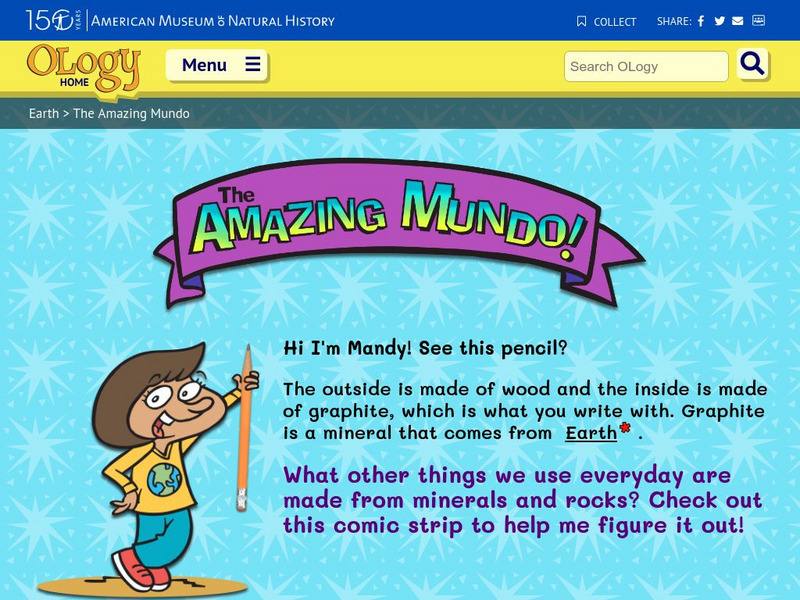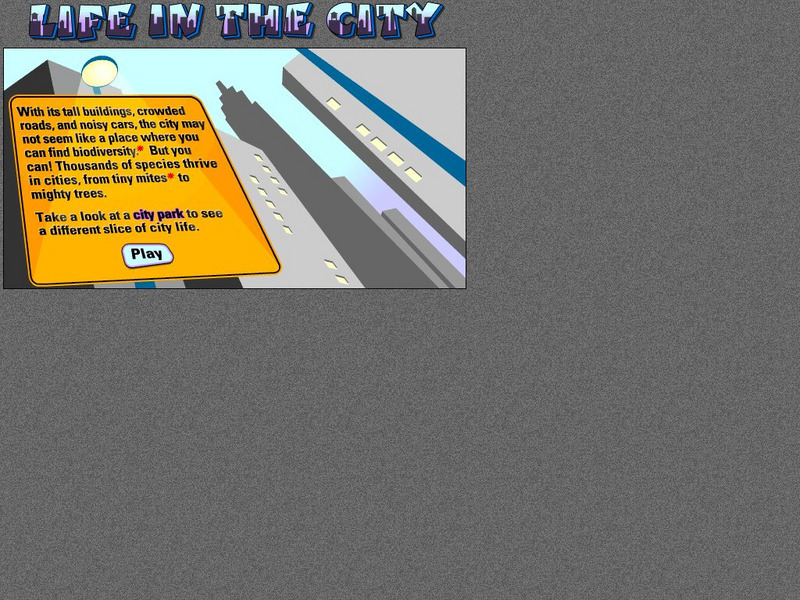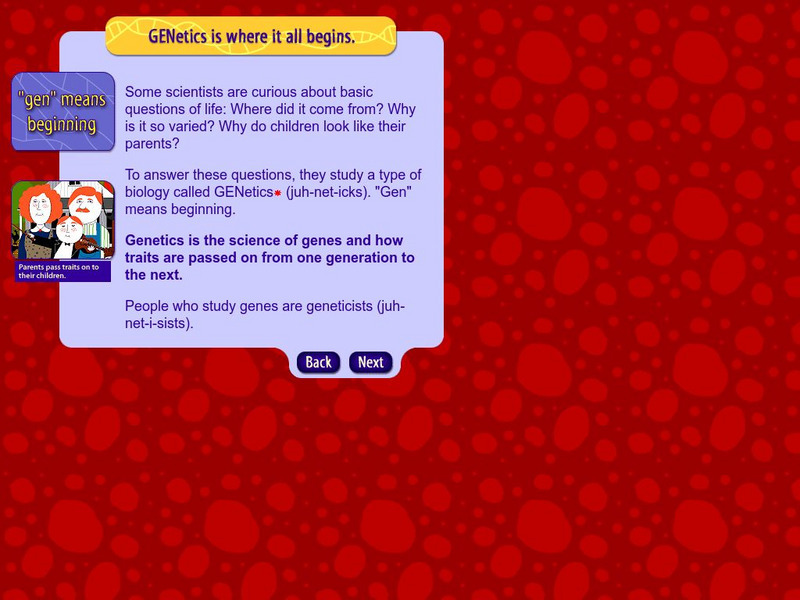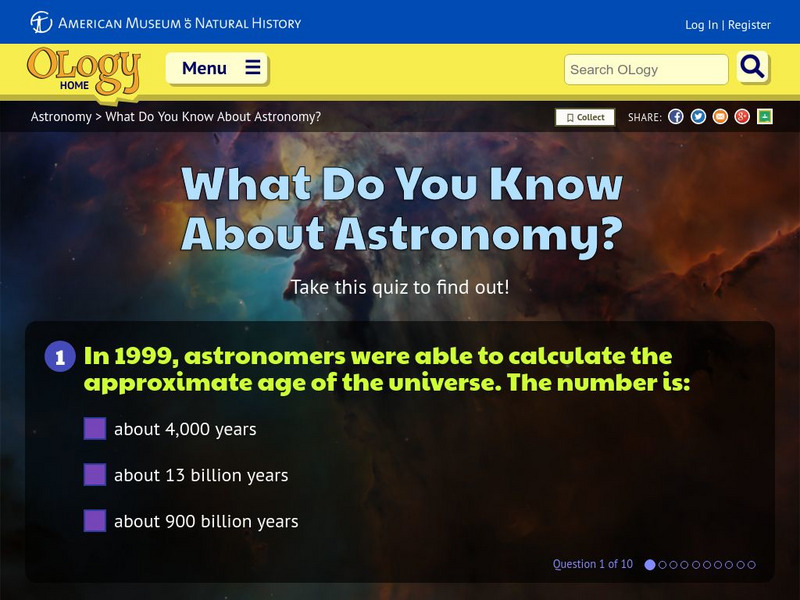American Museum of Natural History
American Museum of Natural History: A Walk Through the Ruins of Petra
Explore an ancient city carved into the sandstone cliffs.
American Museum of Natural History
American Museum of Natural History: See the Light
Take a look at light with these three easy experiments
American Museum of Natural History
American Museum of Natural History: Play With Color and Light
See what happens when you mix different colors of lights.
American Museum of Natural History
American Museum of Natural History: Trip Up Your Brain
Try this trippy experiment to fool your brain.
American Museum of Natural History
American Museum of Natural History: Crazy Camouflage
Create a flounder fish that's hard to spot. In this hands-on activity, students gather evidence to explore how camouflage helps animals survive.
American Museum of Natural History
American Museum of Natural History: What Is Water?
This comprehensive article provides information about the physical properties of water, the importance of water as an Earth material, the processes and cycles that water undergoes on Earth, its importance to life on Earth, and why we...
American Museum of Natural History
American Museum of Natural History: Living Large
This engaging game about dinosaurs allows students to analyze and interpret fossil data, as well as engage in argument from evidence. The game helps students to understand that fossils provide evidence about the types of organisms that...
American Museum of Natural History
American Museum of Natural History: Grow Rock Candy
Students can carry out an investigation using sugar and water to determine whether heating or cooling a substance may cause changes that can be observed. This activity reinforces the ideas that the properties of materials can change when...
American Museum of Natural History
American Museum of Natural History: Find My Plankton Baby Picture
By observing photos of plankton at different life stages, students can obtain information that will allow them to construct evidence-based accounts of how parents and offspring don't always look alike.
American Museum of Natural History
American Museum of Natural History: Make Your Own Weather Station
Students can plan and carry out investigations of local weather patterns by building their own weather stations to collect observations of various weather conditions: rainfall, wind direction, and air pressure.
American Museum of Natural History
American Museum of Natural History: Map Your World
Students can follow these easy steps to develop a model (drawing) of their room and the things in it. Then they can broaden the drawing to include their entire floor, apartment, or house.
American Museum of Natural History
American Museum of Natural History: Five Tools and Processes for Translating the Ngss Into Instruction and Classroom
The Five Tools and Processes for Translating the NGSS are designed to help professional development leaders work with teachers on curriculum, instruction, and assessment as they achieve this vision. Click the link for each tool for an...
American Museum of Natural History
American Museum of Natural History: The Ancient City of Petra
Explore the story and history of the ancient city of Petra.
American Museum of Natural History
American Museum of Natural History: Picturing the Museum
Archive of historical photographs of the museum's dioramas and exhibits from the early twentieth century offers a glimpse into the work of exhibition designers from eras past.
American Museum of Natural History
American Museum of Natural History: Jade O Logy Card
Investigate some facts about jade by reading this interactive Ology card then answering some questions.
American Museum of Natural History
American Museum of Natural History: O Logy: Stuff to Do: Finding Fossils
Guidelines for investigating fossils in the field include specimen-finding strategies, dos and don'ts, examples of the kinds of fossils you may see, and other helpful information, such as how to record your observations and finds in a...
American Museum of Natural History
American Museum of Natural History: O Logy: The Amazing Mundo
Introduction, in comic strip format, to a selection of minerals and rocks that are used to make everyday objects, such as glass, aluminum foil, coins, and computer chips.
American Museum of Natural History
American Museum of Natural History: O Logy: Stuff to Do: Edible Earth
Take a look at the layers that make up our Earth: inner core, outer core, mantle, and crust. Then have fun making a model of the Earth's interior that you can eat up.
American Museum of Natural History
American Museum of Natural History: O Logy: Life in the City
Biodiversity can be found in many places, including city parks. At this OLogy learning game site, players use a magnifying glass to find organisms that live there and also learn something about how each organism relates to others nearby.
American Museum of Natural History
American Museum of Natural History: O Logy: What's the Big Idea? Biodiversity
Find information about diversity among genes, species, and ecosystems that helps answer questions about the importance of biodiversity and how we can save species from extinction.
American Museum of Natural History
American Museum of Natural History: O Logy: What's the Big Idea? Genetics
Find an overview of genetics--the science of genes--in a click-through series of short perspectives on the topic.
American Museum of Natural History
American Museum of Natural History: O Logy: Stuff to Do: Mint Your Own Coin
The information on coins tells us a lot about the national identity of the country where it was made. Learn about the language and symbolic content of coins by creating one of your own that communicates something about your personal...
American Museum of Natural History
American Museum of Natural History: O Logy: What Do You Know? Astronomy
Take this ten-question self-scoring quiz to test your knowledge of astronomy facts: age of the universe, why stars and planets are spheres, where other life might exist in the outer space, the Milky Way, and more.
American Museum of Natural History
American Museum of Natural History: O Logy: What's the Big Idea? Water
Illustrated article that explains why all living things need water.











